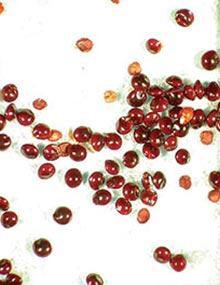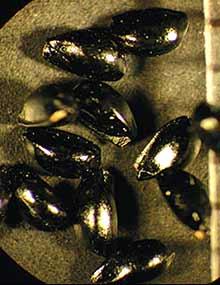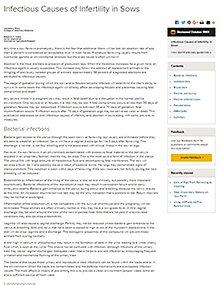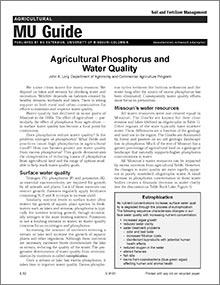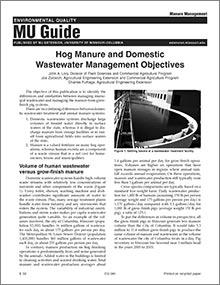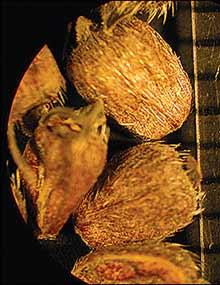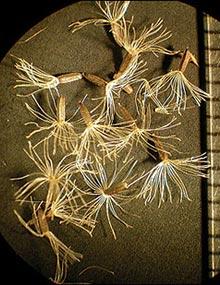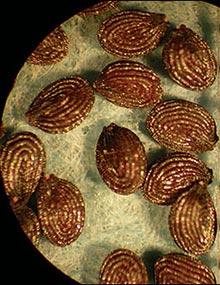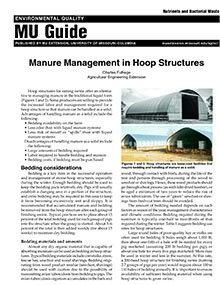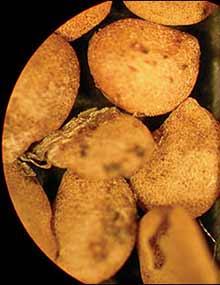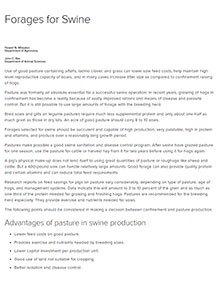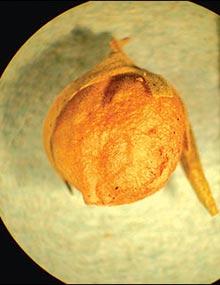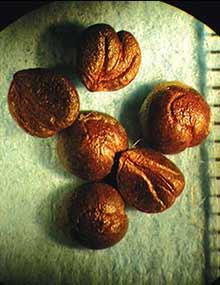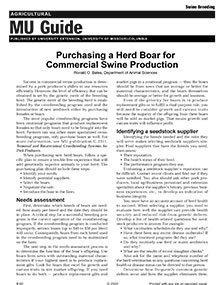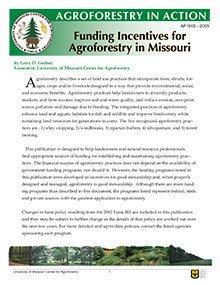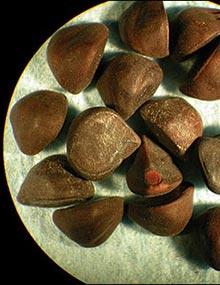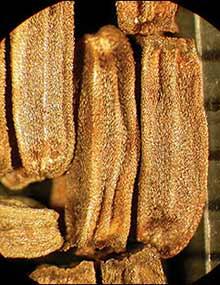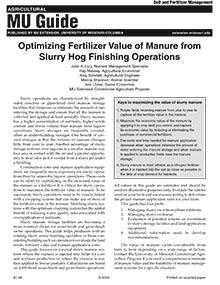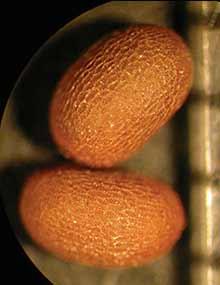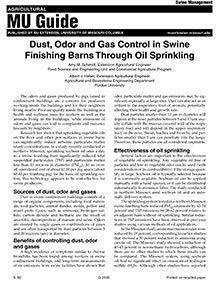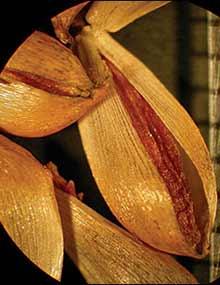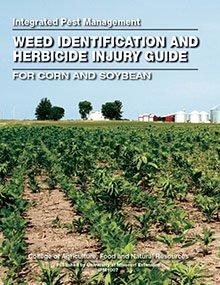Missouri Weed Seeds, Page 04
Reviewed
In Missouri the amaranths (pigweeds) make up the vast majority of plant genera that occur within this family.
Gases and Odors From Swine Wastes
Reviewed
Raising hogs in confinement has caused concern for air quality inside and outside of buildings.
Missouri Weed Seeds, Page 39
Reviewed
Ranunculaceae (Buttercup family), a rather large group of plants, is best known for buttercups, of which there are nearly 20 species in Missouri. Clematis is another fairly common plant genus occurring in this family.
Agricultural Phosphorus and Water Quality
Reviewed
This guide demonstrates the complexities of reducing losses of phosphorus from agricultural land and the range of options available to help reach water quality goals.
Missouri Weed Seeds, Page 07
Reviewed
The Dogbane family (Apocynaceae) has relatively few members that occur in Missouri.
Hog Manure and Domestic Wastewater Management Objectives
Reviewed
The objective of this publication is to identify the differences and similarities between managing municipal wastewater and managing the manure from grow-finish pig systems.
Missouri Weed Seeds, Page 42
Reviewed
Rubiaceae (Madder family) is a large family of plants with about 600 genera; there are about eight genera present in Missouri. The genus Galium is the largest in this state with at least 11 species, including a common winter annual, catchweed bedstraw.
Missouri Weed Seeds, Page 10
Reviewed
Asteraceae, the aster family is the largest and most diverse family of broadleaf plants in Missouri. Its members include various species of goldenrod, sunflower and thistle.
Missouri Weed Seeds, Page 13
Reviewed
Brassicaceae (Mustard family) is one of the larger groups of plants in the state. Several plants within this family, such as yellow rocket and wild mustard, are common throughout Missouri.
Manure Management in Hoop Structures
Reviewed
Hoop structures for raising swine offer an alternative to managing manure in the traditional liquid form. Some producers are willing to provide the increased labor and management required for a hoop structure so that manure can be handled as a solid. Advantages of handling manure as a solid include the following:
Missouri Weed Seeds, Page 45
Reviewed
Some of the state’s most prevalent weed problems are caused by members of Solanaceae (Nightshade family), such as various species of nightshade. Other members are commonly cultivated, such as tomato, pepper, potato and eggplant.
Forages for Swine
Reviewed
It is still possible to use large amounts of forage with the breeding herd. Visit our site to learn about using Forages for Swine.
Missouri Weed Seeds, Page 16
Reviewed
Caprifoliaceae (Honeysuckle family) includes several species of honeysuckle, viburnum and elderberry.
Missouri Weed Seeds, Page 48
Reviewed
Several species of Vitaceae (Grape family) are commercially valuable to the state’s economy. Virginia creeper is one of the most common vining weeds encountered in undisturbed habitats.
Funding Incentives for Agroforestry in Missouri
Reviewed
Find government and private funding programs to finance practices such as alley cropping, windbreaks, riparian buffers, silvopasture and forest farming.
Missouri Weed Seeds, Page 19
Reviewed
Most of the members of Convolvulaceae (Morningglory family) are vining plants, including several common species of morningglories, bindweeds and the parasitic group of plants, dodders.
Missouri Weed Seeds, Page 22
Reviewed
The only two members of Dipsacaceae (Teasel family) that are known to occur in Missouri are cutleaf and common teasel.
Optimizing Fertilizer Value of Manure from Slurry Hog Finishing Operations
Reviewed
See recommendations for applying manure on corn, soybeans or fescue. Learn how to maximize slurry manure’s value and assess its storage and application costs.
Missouri Weed Seeds, Page 25
Reviewed
The majority of Geraniaceae (Geranium family) plants present in Missouri are geraniums. There are at least five species known to occur in the state.
Missouri Weed Seeds, Page 28
Reviewed
Besides being considered weedy plants, several members of Liliaceae (Lily family) are commonly cultivated. Such members include asparagus, yucca and many cultivars of daylilies.
Weed Identification and Herbicide Injury Guide for Corn and Soybean
Reviewed $37
Weeds can significantly reduce corn and soybean yields. View photos of 141 weed species at different stages of development and learn to identify them in this publication. Also see photos and descriptions of symptoms for herbicide-injured plants.
